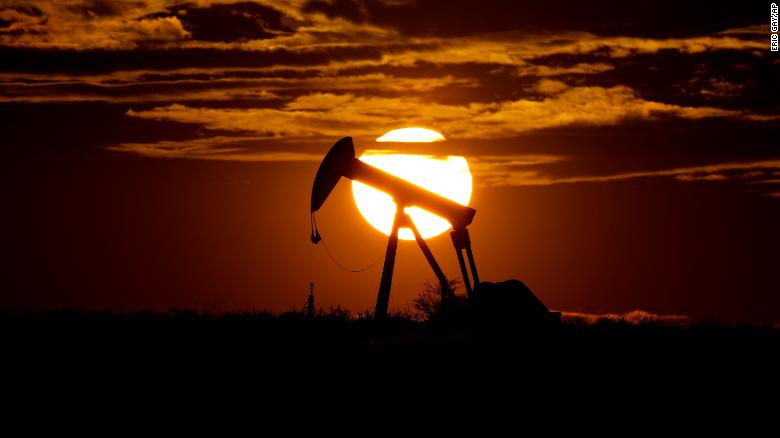You are using an out of date browser. It may not display this or other websites correctly.
You should upgrade or use an alternative browser.
You should upgrade or use an alternative browser.
Oil Price : News, Updates and Discussion
- Thread starter BlackOpsIndia
- Start date
middle east is so screwed right now.
They are busy acting tough on twitter against BJP and RSS. Whoever toes Pakistan's line goes down same sink.
Except for pakistan lol. They are way too lucky.They are busy acting tough on twitter against BJP and RSS. Whoever toes Pakistan's line goes down same sink.
Good explainer in this thread :How do these numbers work in practice?Will Saudis give us money now for buying
trying out new smilies🛢
⚔

lol - you wish.How do these numbers work in practice?Will Saudis give us money now for buying
trying out new smilies🛢
⚔

saudis has a lot of oil - thats worthless and a lot of $$ that.
according to you - now they have to give both away?
It was a joke.lol - you wish.
saudis has a lot of oil - thats worthless and a lot of $$ that.
according to you - now they have to give both away?
I know man.. I was pulling it forward. FWIWIt was a joke.
American oil is crashing because it has nowhere to go
Julia Horowitz April 20, 2020

The sun sets behind an idle pump jack near Karnes City, Texas, Wednesday, April 8, 2020. Demand for oil continues to fall due to the new coronavirus outbreak. (AP Photo/Eric Gay)
London (CNN Business)The spectacular collapse in oil markets is showing no signs of easing, as the coronavirus crisis saps demand and producers run out of places to store all their excess barrels of crude.
The selloff can be attributed in part to market mechanics. The May futures contract for West Texas International, the US benchmark, is about to expire. Most investors are already focusing on the June contract, thinning out trading volume and feeding volatility, UBS analyst Giovanni Staunovo told me.
The June futures contract for WTI is trading close to $22 per barrel, but that's still more than 10% down on the day. Brent crude futures, the global benchmark, fell 3.8% Monday to $27 per barrel.
The extreme pressure on the WTI contract for May highlights ongoing concerns about the supply and demand dynamics plaguing the oil market.
Saudi Arabia, Russia and other producers tried to prop up prices with a deal last week to slash production by 9.7 million barrels per day in May and June, the deepest cut ever negotiated. But that isn't expected to soak up the supply glut caused by evaporating demand for energy.
Oil storage facilities are still at risk of overflowing, raising the chance that some oil producers in the United States and Canada could start paying customers to take crude off their hands, according to Staunovo.
Fewer than 10% of S&P 500 companies have reported results for the January to March period to date. So far, they've "generally disappointed relative to tepid expectations," according to David Kostin, chief US equity strategist at Goldman Sachs. The investment bank calculates that 43% of companies have missed Wall Street's predictions, on pace for the highest rate since at least 1998.
FactSet analyst John Butters predicts that S&P 500 earnings dropped 14.5% in the first quarter. That would mark the largest year-over-year decline for the index since the third quarter of 2009.
Watch this space: Much of the attention will be on expectations for full-year earnings, as investors try to assess how the coronavirus pandemic will hit businesses over a longer period. But Kostin notes that most strategists have written off 2020 entirely and are already looking ahead to 2021.
The broader picture, of course, is complicated. "The confusing thing for markets at the moment is the huge dichotomy between what will possibly be one of the worst synchronized global economic slumps in history against what is undoubtedly the largest ever intervention," Deutsche Bank strategist Jim Reid told clients Monday.
Deutsche Bank noted last week that top central banks have expanded their balance sheets by $2.7 trillion, two thirds of which has come from the US Federal Reserve. But negative economic data could continue to cause problems for investors who are ready to get back into riskier assets, with uncertainty about how long lockdowns will last remaining a key issue.
Source: CNN
if anyone had known OIL would fall this low today - why would they not wait until today?
why do some of these folks talk this stupid? damn!
What geopolitical implications are there now that Russia, Saudi, Iran, Venezuela and all the other petro-states can no longer maintain their budgets? There is no way they planned for crude to go negative (even if temporary, it shows how much of a glut there is and as long as this virus remains I don't see it reducing over the next few months at least!). I don't think any of these countries have a diverse enough revenue stream to compensate.




